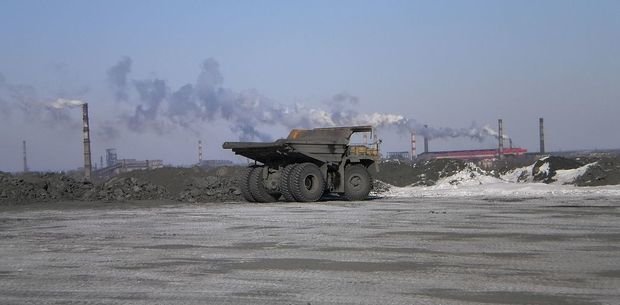Russian industry giants think of improving corporate sustainability
Reputational risks related to pollution and air emissions make Russian industrial companies take care of their ratings on environmental, social and corporate governance issues (ESG). The topic is especially significant for the enterprises that seek international investment.
Russia's industrial sector is moving towards the global trend of improving corporate sustainability to close a gap with the West that could threaten Russia's long-term attraction as a place to invest, considers Financial Times. The national industry is dominated by miners, metal smelters and manufacturing plants that are often dated back to the Soviet era. The lack of modern efficiency practices or environmental safeguards coupled with an insufficient legal regulation made Russia the world's fourth largest producer of CO2 in 2016, according to EU statistics. At the same time, the country has the ninth largest population and 12th largest economy. Industrial plants account for 55% of Russia's total air emissions.
According to Egon Vavrek, portfolio manager at Netherlands-based financial services provider APG, investors now care a lot about ESG. ''It is a hot topic at the moment, and lots of investors want to talk about it… In Russia historically, governance and environmental concerns were the main issues,'' he commented.
Dutch bank ING has recently provided an unusual loan to Russian gold miner Polymetal. If the company's ESG rating goes down, the interest rate on the $80 million loan goes up, but if the rating improves, the coupon decreases. Such a structure is new not only for the Russian mining industry but also for the global one. ING is now working to bring similar ESG-related credit products to other Russian clients, said CEO of the bank's Russian operations Mikhail Chaikin.
Head of Polymetal Vitaly Nesis considers that the global mining industry is from three to five years behind this trend. As for Russian miners, they are behind the global curve and have a steeper hill to climb in terms of historical and cultural issues. ''A lot of companies, particularly in the extractive sector, don't pay enough attention to it,'' said Nesis. ''If we don't lead today, we will inevitably have to catch up later. This is the new reality.'' He explained that all the company's suppliers and contractors must meet their ESG standards or be blacklisted.

Russia's key nickel and palladium producer Nornickel is going to spend $2,5bn on a programme intended to reduce its sulphur dioxide emissions by 75% in 2023. The move was prompted by government pressure and concern among the company's investors. Severstal steel company has pledged to spend $230 million on ''maintenance, environmental and health and safety projects'' this year. The steel producer's Chief Financial Officer Alexey Kulichenko believes that a focus on ESG allows companies to improve their transparency and convince investors that they operate under the same standards as Western rivals.
Meanwhile, some Russian industrial companies doubt the objectivity of ESG assessments complaining that ESG rating agencies lack the understanding and expertise of financial peers such as Moody's, S&P or Fitch. ''There is no established mode of analysis and a high degree of subjectivity,'' said the head of investor relations at a Russian industrial company, adding that some investors cite reports from unknown rating agencies.